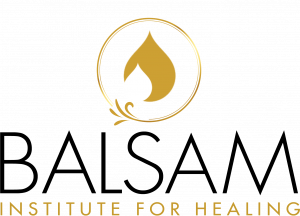Vaccine Adverse Events: Fact or Fiction
Let’s start by talking about the elephant in the room. The controversy that revolves around vaccines and the side effects that have people concerned but not willing to talk openly about. It’s a thought in the back of every mother’s mind after each child’s wellness visit and more recently after the newly released COVID vaccine…are we supposed to have long term side effects after a vaccine?
These side effects after a vaccine are known as “vaccine adverse events,” resulting in a vaccine injury. By definition, a vaccine adverse event is an unfavorable medical outcome that occurs after receiving a vaccine or immunization and does not resolve in a reasonable amount of time.
Sadly, the idea that a vaccine or immunization could be harmful is highly controversial. In fact, the concept of vaccine adverse events is not well accepted or even acknowledged by mainstream medical communities. I’m here to challenge this attitude by proposing a question: why is the possibility of a vaccine/immunization adverse event not accepted when the medical community widely accepts that medication adverse events happen all the time? In truth, drug reactions are highly recorded and we readily accept that it just happens. Treat the patient and move on. And, oops, don’t take that medication again.
During our medical training, a great deal of time is spent talking about the dangers of drug interactions and drug reactions. We spend time learning how to medically resolve medication induced, life threatening reactions like Stevens-Johnsons Syndrome and anaphylaxis. Unfortunately, one of the leading causes of death in America is polypharmacy which is a situation where a patient is on multiple medications that interact adversely and can cause death.
So again, I ask, if a medication can cause life threatening reactions why is it outside of the realm of possibilities that a vaccine/immunization could have a similar effect?
Let’s look at this from a different angle. Sometimes, people will have adverse reactions to natural things. Most of us know people that always carry an epi-pen with them because they have a life-threatening reaction to shellfish or bee stings. Do we question their vigilance? Of course not, reactions happen sometimes. Parents of infants don’t give their babies honey because of a potentially life-threatening adverse reaction called infant botulism. Do we scrutinize their parenting skills? Of course not, reactions happen sometimes.
Look under your kitchen sink or in your garage. Most folks keep chemicals in their house like herbicides, pesticides, household cleaners and such. Look at the bottles and you will notice that the manufacturer of these chemicals warns you that chemicals are dangerous and can cause serious injury if inhaled or ingested. They also advise you to call the poison control center should such an event happen. It’s so widely taught and accepted that chemicals can cause life threatening reactions that most of us immediately recognize the hazard signs on chemical containers. We teach our children that many chemicals are dangerous and to stay away from them.
And yet, we get shot down when we start talking about the possibility that a vaccine/immunization can cause an adverse reaction. Honestly, I have not figured out why. Why is this topic off limits?
The reality is that vaccine adverse events leading to a vaccine injury are real events, they actually happen, and they happen often. I see it in my practice every day.
A couple of the questions I often get asked are ‘why do drug or vaccine reactions happen to begin with?’ and ‘why do some people get a vaccine or take a medication and nothing happens while other people do the same thing and have a severe reaction?’.
There are many reasons but let’s discuss the most common reason: allostatic load. This is the load the body works under daily to maintain homeostasis or balance within the physiology. Contributing factors to allostatic load include the Standard American Diet which is highly inflammatory, latent and chronic infections like candida overgrowth, toxicology, mental/emotional stress, poor sleep quality, EMF exposure, thermal stress, and the list goes on and on.
The body is strenuously working under a load of seen and unseen stressors to perform the countless chemical reactions needed within each cell to maintain homeostasis. Consequently, the body is struggling to maintain balance under their own personal allostatic load. Add to that load something like a vaccine/immunization and the body can lose its ability to maintain homeostasis. Now we are dealing with a physiology that has lost its ability to compensate and the result is an injury or new disease development.
There is a huge difference between a medication that you take orally and a vaccine/immunization that is injected into your body. An oral medication can be forcibly removed but an injection cannot. For example, your practitioner can use charcoal or other binders to induce vomiting and/or diarrhea to cleanse the body of a medication that is causing a severe reaction. And although the patient may still feel crummy, the life-threatening effects of that medication can be negated. An injection, however, cannot be removed. Once you get a shot in your hip or arm, that substance cannot be recalled or removed. It’s not like a pill that will remain within the confines of the GI tract for a period of time. An injection is immediately released into the tissues of the body and cannot be recalled.
This is how the story usually goes:
- A patient presented themselves to receive a vaccine/immunization
- There is the introduction of a substance into a body that was already struggling under allostatic load
- That substance caused a significant shift in their body’s ability to maintain homeostasis
- Suddenly, we have an injury and the manifestation of a health issue
Where do we go with this now? I think the first place to start is simply acknowledging that vaccine adverse events leading to vaccine injury in adults and children is within the realm of possibilities. I work with vaccine injured adults and children in my practice all the time, this is a growing health crisis.
The focus of this article is to simply encourage people to entertain a new thought; if a good, old-fashion drug reaction can occur then is it possible to have a reaction to a vaccine/immunization? If most chemicals can cause life threatening reactions, can a vaccine do the same thing?
In future articles, we will discuss some case studies from vaccine injured patients I am working with so people can learn how these injuries usually present. We will also discuss symptom development and some ways to buffer the effects. Until then, if you suspect a vaccine adverse event or vaccine injury in yourself or a loved one, check out the Vaccine Adverse Event Recovery Program detailed at balsaminstitute.com.
For your health,
The Vax-Negator




